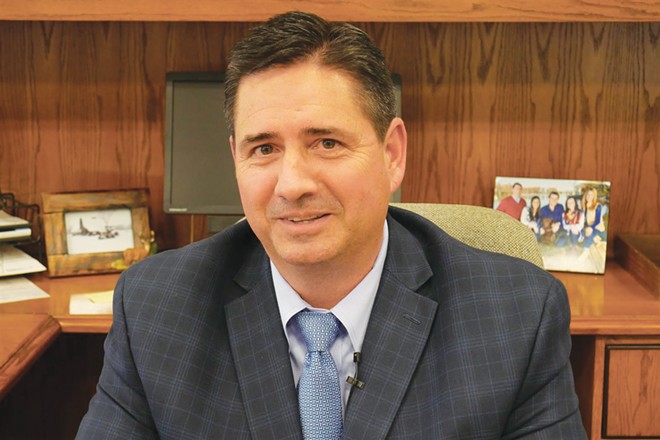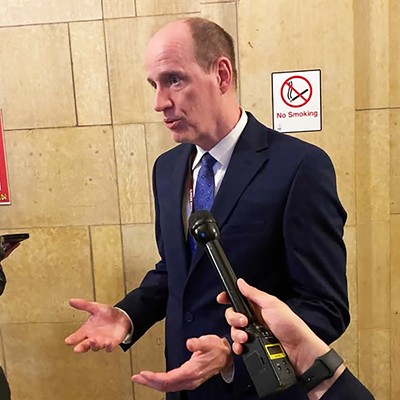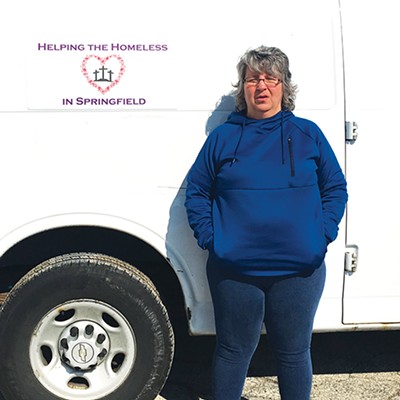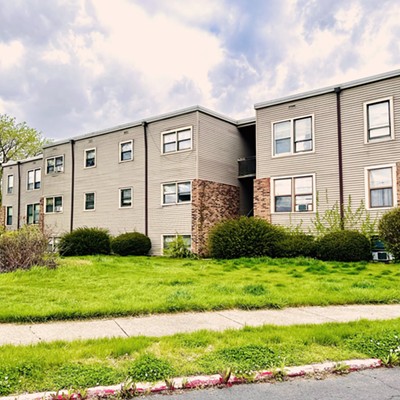Jerry Costello II has some decorating to do in his office.
The new director of the Illinois Department of Agriculture still has framed pictures stacked against a wall in his mostly empty corner office in Springfield. You could forgive him, though. He's been on the job since only March 2.
Among the few things on Costello's desk are a family portrait and an old dairy cowbell passed down to him through generations.
"Agriculture is a passion of mine," he said during an interview March 4. "It's something that's been a part of my life for as long as I can remember."
Costello, 51, is just getting settled in, but he says he has a clear vision for the ag department, including uniting stakeholders, expanding the department's initiatives and working with Gov. J.B. Pritzker to support farmers and rural communities.
Costello's appointment came after Pritzker requested the resignation of previous ag director John Sullivan, who was ousted for failing to disclose the contents of a 2012 email that pointed to a possible coverup of a "rape in Champaign" and "ghost workers" in Gov. Pat Quinn's administration.
Farming and family
Costello II, son of 12-term U.S. Congressman Jerry Costello, was born and raised in Belleville in a family with a rich agricultural history in southern Illinois. His great grandfather operated a dairy farm in Sesser, while his grandfather ran an orchard and raised beef cattle.
"Every other weekend I spent on my grandfather's farm," Costello said.
Costello graduated from Southern Illinois University and enlisted in the U.S. Army, serving in the famed 82nd Airborne Division in Operation Desert Storm. After returning home, he began a career in law enforcement, rising from a patrolman to assistant police chief. He was the top cop at the Illinois Department of Natural Resources when Pritzker tapped him as ag director.
Bolstering the Democrat's ag experience is the nearly eight years he spent in the Illinois House of Representatives, which included more than five years working with farmers and agriculture groups as chairman of the Agriculture and Conservation Committee.
Working with the governor
Costello was not a stranger to Pritzker when his administration asked if he was interested in the job. Costello served on the governor-elect's agriculture transition committee in 2018.
"We have a very good relationship," Costello said. "I am extremely pleased to work with him and for him."
Costello said he expects to be a main courier of Pritzker's $420 million plan to expand broadband internet throughout the state in a program called Connect Illinois. The initiative would especially impact rural and agricultural communities by connecting people to educational, health and business resources with high-speed internet.
Flooding and climate change
Another issue Pritzker has made a priority is addressing climate change.
Illinois farmers suffered through record precipitation during last year's spring planting season, which scientists, including state climatologist Dr. Trent Ford, have connected to climate change. Flooded fields delayed plantings and decreased corn and soybean production by about 20 percent.
"I believe that it's absolutely happening," Costello said of climate change. "You're living in a shell if you don't realize something different is going on right now."
Costello's former House district, a chunk of southwest Illinois along the Mississippi River, was heavily impacted. Corn and soybean production in the district's main counties, Monroe and Randolph, dropped around 30 percent last year.
"One of the things that we've got to make sure that we're doing is we're working with the federal government to maximize what we can as far as making sure our farmers are protected," he said.
Initiatives on his mind
Costello said one of his top priorities will be to expand a program launched last year that encourages farmers to grow cover crops, which are planted between cash crop seasons to protect soil and manage erosion.
That also includes working with soil and water conservation districts to ensure that "from an environmental standpoint, we're doing everything we can to make sure that we're getting the best yields for farmers, but at the same point in time, leaving the earth in the best possible state."
Other initiatives on Costello's mind are expanding the state's new hemp program and helping urban communities grow fresh fruits and vegetables in so-called food deserts.
"We can help in a number of ways and work with people that maybe aren't considered traditional farmers," he said.
Costello says he wants to bring ag stakeholders together, from farmers to consumers to groups affected by the industry. He also wants to educate people about agriculture's importance to Illinois' economy, showing how everything is connected from planter to dinner plate.
"You've got producers and users," Costello said. "One really cannot survive without the other."
Trade war uncertainty
Illinois farmers have been hit hard by a trade war with China that enters its third year this spring. The Trump administration signed the first phase of a trade agreement in January, however the president said he will not lift America's tariffs until phase two is completed.
"What's very concerning to me," Costello said, is how the Trump administration's trade negotiations might be straining America's relationship with China. During the trade war, China has found other partners to meet its demand for top Illinois exports like pork and soybeans.
"You can put Band-Aids on this stuff by taking people's eye off the ball and giving temporary aid, but we've got to have long-term relationships in place in order for the product to maintain what it's worth," Costello said.
Contact Ben Orner at [email protected].

















